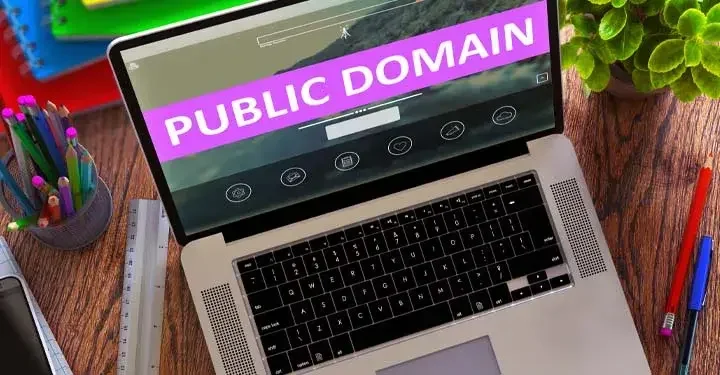If you create a work, you own the copyright for it. Any work you create in a fixed manner, such as a book, song, movie, or computer software, is copyrighted by its creator from the moment it is produced. Not all creative works carry a copyright though. Some are in the public domain, which means no one owns them—and anyone can use them.

Wrks in the public doomain
Copyright is not forever. U.S. copyright law protects a work for the life of the creator plus 70 years. During that time period, the work can be used only if a license is granted or the work is used in a way covered by the fair use doctrine. Once the copyright expires, that work goes into the public domain, where it can be used by anyone.
Other works are automatically in the public domain, such as any work created by the government, including any found on U.S. government websites (usually indicated by .gov in the domain name). Additionally, facts, mathematical formulas, and commonly used words and phrases cannot be copyrighted and so are in the public domain.
Creative Commons
A nonprofit group seeking to reform copyright law, Creative Commons advocates for more work to be made available for public, mostly noncommercial, use. The organization's message is not anti-copyright but instead that there should be more flexibility when it comes to copyright and legal usage.
The Creative Commons website provides language for creators to grant free licenses to anyone who wishes to use their work to further knowledge and creativity. Licenses vary in how strict they are. Some require attribution, while others require attribution and licensing under the same terms as the original. Some do not permit commercial reuse, while others do.
Placing work in the public domain
As the creator of a work, it is your choice whether you want to retain copyright or share your work with others by placing it in the public domain. If you do not plan to market your work or use it to generate income, or if you just enjoy the creative process and want to share your work with others, placing it in the public domain might be right for you.
To place your work in the public domain, Creative Commons suggests creators place a CC0 mark instead of a copyright mark (©) on their work. An alternative is to simply state "this work is dedicated to the public domain" on your work.
Public domain software
Software licensing can be more complicated than other types of copyright licenses. Different types of software licenses allow different types of use.
Some software is open source, also called copyleft licensing, which means it's completely in the public domain. Some software programs have permissive licenses with very minimal restrictions about the how the software can be used. The owners still retain some copyright, so the code is accessible for many types of uses but is not fully in the public domain.
Determining if a work is public domain
There are many, many lists of public domain works you can find simply by using a search engine. If you are trying to determine if a specific work is in the public domain, you should first look at the work itself and check for a copyright symbol. Another option is to find the creator and ask if it is available for use. If you still don't know, you can look the work up on the U.S. Copyright Office database, although this only lists items for which copyright has been registered. (Remember, copyright exists from the moment of creation, and the creator is not required to register it.)
In some situations, it can be difficult to tell if a work is copyrighted or in the public domain. The best practice is to not use it if you can't be sure. If you do use it and it turns out to be copyrighted, you may have committed copyright infringement and may be liable to the copyright owner.

